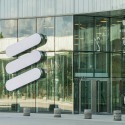
Ericsson CEO Börje Ekholm, in an interview with Bloomberg, seemed to acknowledge that vendor diversification was inevitable going forward. Both Ericsson and Nokia, he suggested, will not have it all their own way in markets where geopolitical pressures have squeezed out Huawei and ZTE.
"We understand the need for more vendor choices," said Ekholm. He indicated that the virtual monopoly currently enjoyed by the Nordic duo in some western markets won't last forever.
The Ericsson CEO added that he needed to be prepared for new rivals to emerge, not least because operators and a growing number of politicians in different countries want to see alternatives to so-called "monolithic vendors."
The implied suggestion from Ekholm was that Ericsson needed to move with the times and be more open and interoperable with other vendors supplying different parts of the network.
Open RAN and growing US influence
An obvious way Ericsson and Nokia will face stiffer competition is through greater openness in the RAN. Ekholm indicated in the Bloomberg interview, however, that this was not going to happen on a large scale anytime soon. It's in the interests of Ericsson and Nokia, of course, that it doesn't.
With Huawei forced out of many markets last year, research firm Dell'Oro estimated that the Scandinavian double-act enjoyed an increase in RAN market shares outside China during 2020 compared with the year previously, going from 35% to 40% (Ericsson) and 25% to 30% (Nokia).
Want to know more about 5G? Check out our dedicated 5G content channel here on Light Reading.
Ekholm, if Light Reading's take on the Bloomberg interview is right, seemed much keener to warn European regulators and governments that an early push on open RAN will likely create greater competition from the US at the expense of European startups.
"A commitment to more open networks is a fine aspiration," continued Ekholm, "but as it looks right now, given that open RAN is mostly dominated by non-European companies, it may be a way to develop a US vendor."
Ekholm argued that a more immediate priority should be to allow more operator consolidation in Europe and raid the European Union's €750 billion ($912 billion) recovery fund to support their 5G rollouts, which would be a happy outcome for Ericsson and Nokia. But such an approach, he maintained, would also help the region's economies.
"That would obviously support our sales, but as a European I also see that it would boost GDP," said Ekholm. "We need to invest in digital infrastructure and the guys that are supposed to invest aren't making an attractive return on capital."
— Ken Wieland, contributing editor, special to Light Reading
About the Author(s)
You May Also Like












